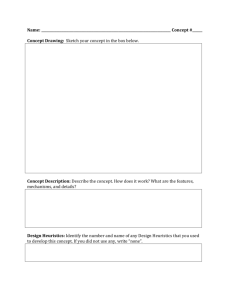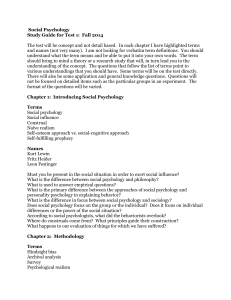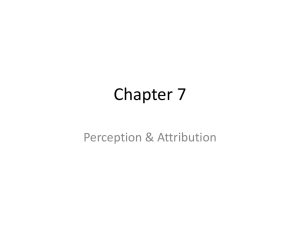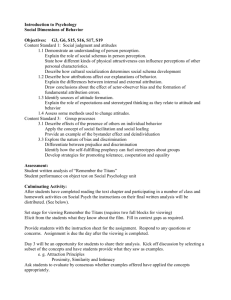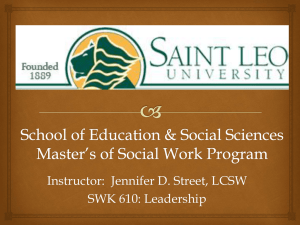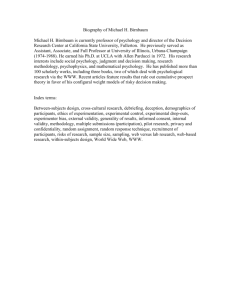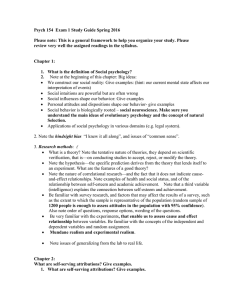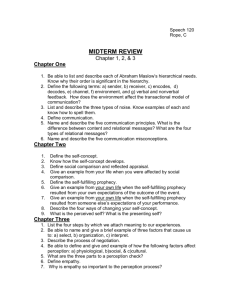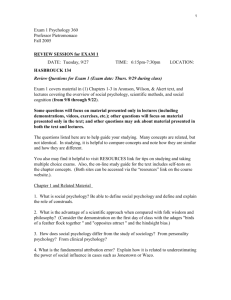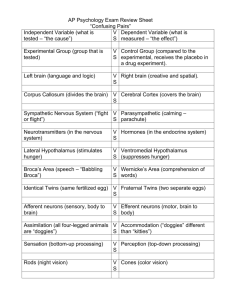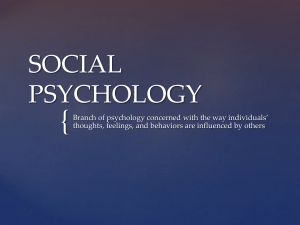social psychology
advertisement
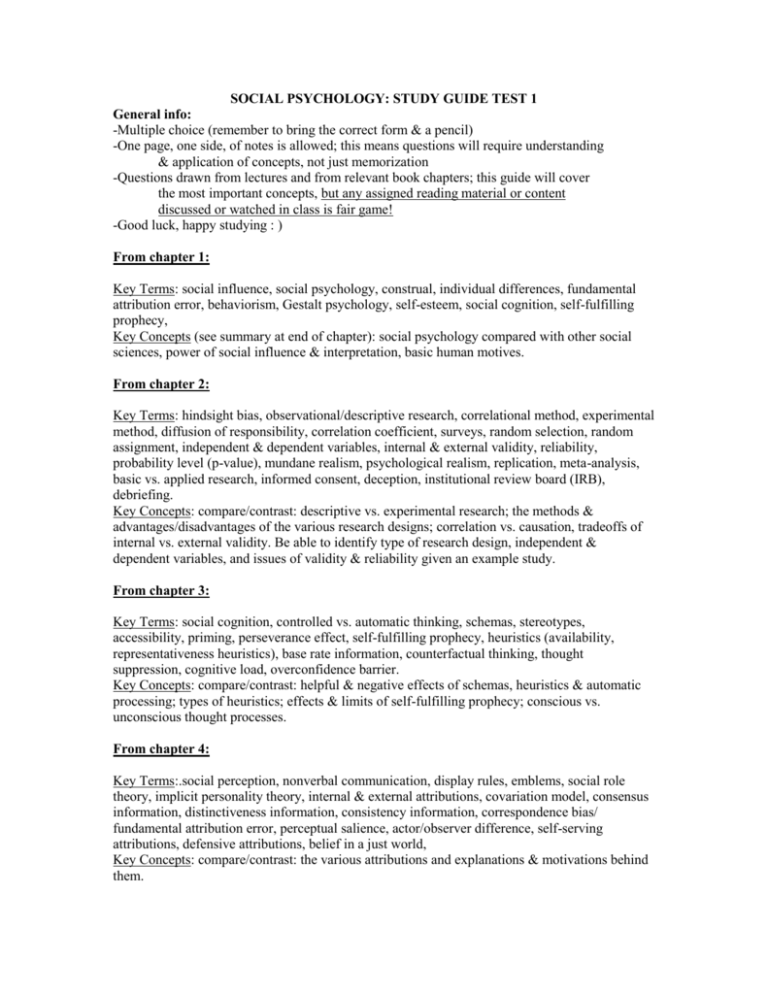
SOCIAL PSYCHOLOGY: STUDY GUIDE TEST 1 General info: -Multiple choice (remember to bring the correct form & a pencil) -One page, one side, of notes is allowed; this means questions will require understanding & application of concepts, not just memorization -Questions drawn from lectures and from relevant book chapters; this guide will cover the most important concepts, but any assigned reading material or content discussed or watched in class is fair game! -Good luck, happy studying : ) From chapter 1: Key Terms: social influence, social psychology, construal, individual differences, fundamental attribution error, behaviorism, Gestalt psychology, self-esteem, social cognition, self-fulfilling prophecy, Key Concepts (see summary at end of chapter): social psychology compared with other social sciences, power of social influence & interpretation, basic human motives. From chapter 2: Key Terms: hindsight bias, observational/descriptive research, correlational method, experimental method, diffusion of responsibility, correlation coefficient, surveys, random selection, random assignment, independent & dependent variables, internal & external validity, reliability, probability level (p-value), mundane realism, psychological realism, replication, meta-analysis, basic vs. applied research, informed consent, deception, institutional review board (IRB), debriefing. Key Concepts: compare/contrast: descriptive vs. experimental research; the methods & advantages/disadvantages of the various research designs; correlation vs. causation, tradeoffs of internal vs. external validity. Be able to identify type of research design, independent & dependent variables, and issues of validity & reliability given an example study. From chapter 3: Key Terms: social cognition, controlled vs. automatic thinking, schemas, stereotypes, accessibility, priming, perseverance effect, self-fulfilling prophecy, heuristics (availability, representativeness heuristics), base rate information, counterfactual thinking, thought suppression, cognitive load, overconfidence barrier. Key Concepts: compare/contrast: helpful & negative effects of schemas, heuristics & automatic processing; types of heuristics; effects & limits of self-fulfilling prophecy; conscious vs. unconscious thought processes. From chapter 4: Key Terms:.social perception, nonverbal communication, display rules, emblems, social role theory, implicit personality theory, internal & external attributions, covariation model, consensus information, distinctiveness information, consistency information, correspondence bias/ fundamental attribution error, perceptual salience, actor/observer difference, self-serving attributions, defensive attributions, belief in a just world, Key Concepts: compare/contrast: the various attributions and explanations & motivations behind them.
